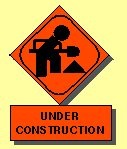Brief to MSPB, 22 January 1982, in Continued Effort to Secure Notification of Specificity and of Rights to Review of the TACOM Decision to Terminate, Retaliating Against Pletten's Whistleblowing.
See also other Briefs in the series, e.g., 21 March 1983,
27 July 1983, 25 Nov 1983, and 2 Jan 1985, as per Pletten's working full-time+ developing every evidence for seeking his reinstatement, and recording his position, for anticipated use in the EEOC forum, which TACOM was obstructing.
More in the series will be posted as scanned. The volume is enormous, takes some time. |



